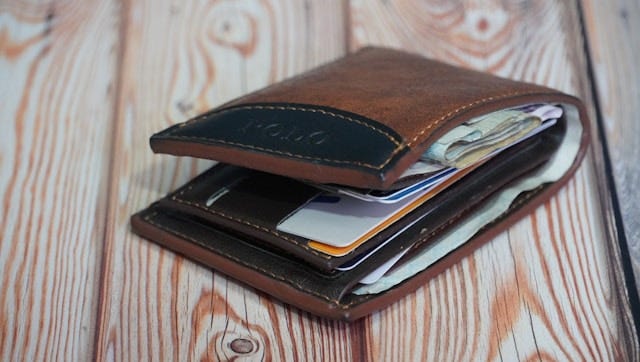Bitcoin Storage: A Beginner's Guide
If you are a beginner, your Bitcoin is most likely still at the exchange where you bought it. Is that a good idea? Well, it depends.
Not financial, investment, legal, or tax advice. Please read our full Disclaimer on the Disclaimer page. Accessible via the provided link and via the homepage menu. Continued reading constitutes your agreement to its terms.
You bought Bitcoin, but where to store it is the question. If you are a beginner, your Bitcoin is most likely still at the exchange where you bought it. Is that a good idea? Well, it depends.
Introduction
When you start researching Bitcoin storage options, you have probably come across terms like custodial wallets, self-custodial wallets, and non-custodial wallets. This can all sound a bit esoteric, but it's actually quite simple if you use good old-fashioned cash as an example. When you have cash, you can either keep it in your own wallet or give it to your bank for safekeeping.
The advantage of having cash in your wallet is that you have 100% control over it. No one can deny you access to the money in your wallet. But if you are not careful with your wallet, your money can be gone forever. In Bitcoin terms, the old-fashioned wallet where you keep your cash would be called a non-custodial wallet, or a self-custodial wallet. A custodian is a caretaker. Because you take care of your own wallet, it is called a self-custodial wallet (you are the caretaker of your wallet) or a non-custodial wallet (because there is no third-party caretaker of your wallet).
The advantage of having cash in the bank is that it is much safer than in your wallet. And (in the US) the government also guarantees your money in the bank up to a certain amount if the bank goes out of business. But you don't have 100% control over your money anymore because the bank has it. If you want your money on the weekend, you are limited by ATM withdrawal limits. If you want your money during working hours, banks may get curious if you want to withdraw large amounts of your own money, and you may have to wait. And, as some Canadians found out during the trucker protests, your money can be frozen if the government is unhappy with you (depending on your country). In Bitcoin terms, keeping your cash in a bank is called a custodial wallet, since the bank is the custodian (caretaker) of your own cash (wallet).
Custodial Bitcoin Wallet
If you store your Bitcoin at the exchange where you bought your Bitcoin, this would be called a custodial wallet, since the exchange is the custodian of your Bitcoin wallet. This type of wallet is often considered more user-friendly and convenient, especially for newcomers, since the user doesn't have to be responsible for securing their Bitcoin. However, the trade-off is that the user must trust the custodian to protect their Bitcoin. This could potentially expose the user to risks such as hacks or mismanagement by the custodian. It is worth noting that the government (in the US) does not guarantee custodial Bitcoin wallets. This is different from banks and brokers, where funds are guaranteed up to a certain amount (in the US). This means that if your Bitcoin custodian goes out of business, you are just another unsecured creditor of the company and could lose a lot of money, as FTX customers found out the hard way when FTX went out of business.
Non-Custodial Bitcoin Wallet
On the other hand, non-custodial crypto wallets, also known as self-custodial or self-hosted wallets, are wallets that allow users to have complete control. They are very similar to traditional wallets where you keep your cash.
Before we talk about non-custodial wallets, we need to talk about private keys and public keys.
Think of private keys as keys that give you 100% control and access to your wallet. They are no different than keys to your house. Anyone who has a key to your house can enter it at will. Obviously, you want to be extremely careful with private keys. Public keys are more like addresses to your house. They allow people to find you and send you stuff, but they don't allow access to your house. So protecting your private key is obviously very important.
Software wallets are non-custodial wallets that exist as applications on desktop and mobile devices. Users can download software wallets from the internet, generate their private keys and manage their cryptocurrencies through the software interface. Software wallets are convenient and easy to use, making them a popular choice for cryptocurrency beginners. However, they are also vulnerable to hacks, malware, and phishing attacks, so users need to make sure they are using reputable software and practicing good security hygiene.
Hardware wallets are physical devices that store private keys offline. Users can connect hardware wallets to their computers or smartphones to securely conduct transactions. Hardware wallets are considered the most secure type of non-custodial wallet because private keys never leave the device, making them immune to online attacks. However, hardware wallets are more expensive than software wallets and may be less convenient to use for frequent transactions.
Summary
In summary, the choice between a custodial and a non-custodial Bitcoin wallet depends on the user's preferences regarding convenience, security, and personal responsibility. Users who prioritize ease of use and are comfortable trusting a third party may prefer custodial wallets, while those who value security and control may opt for non-custodial wallets.
Thank you for reading the article. Hope you enjoyed it.
Hungry for more? Subscribe to the newsletter - it's free and fabulous.Enjoyed this article? Don't keep it to yourself! Share it with a friend or two. It's free, and they might even buy you a coffee as a thank you.The Fringe Finance Report


